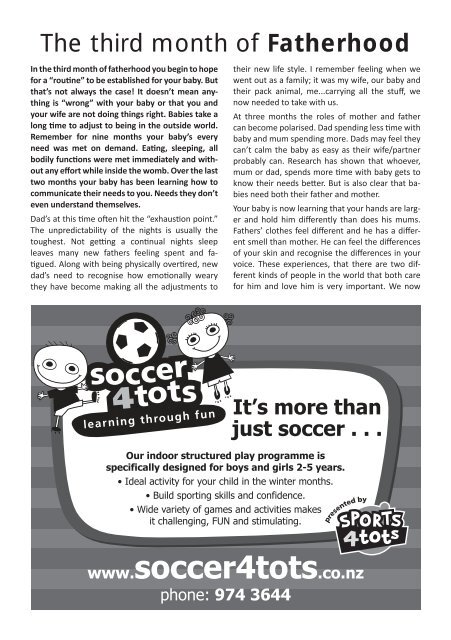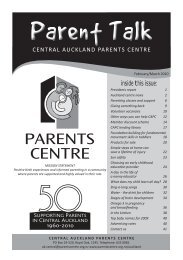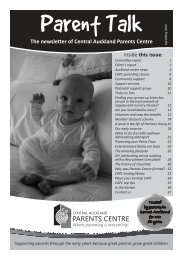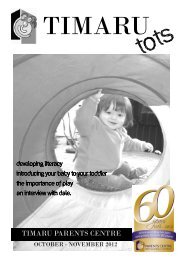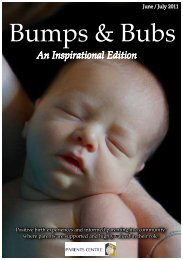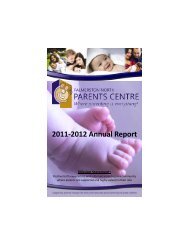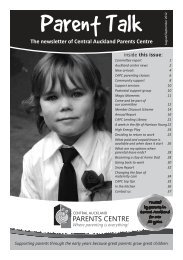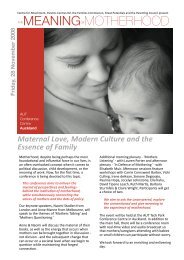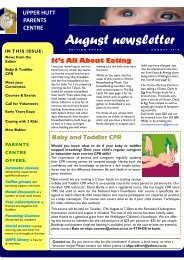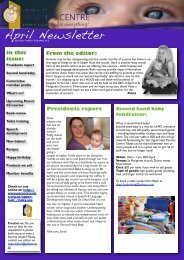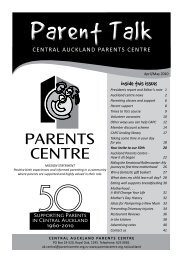News Letter Oct-Nov 2012 - Parents Centres New Zealand Inc
News Letter Oct-Nov 2012 - Parents Centres New Zealand Inc
News Letter Oct-Nov 2012 - Parents Centres New Zealand Inc
You also want an ePaper? Increase the reach of your titles
YUMPU automatically turns print PDFs into web optimized ePapers that Google loves.
The third month of Fatherhood<br />
In the third month of fatherhood you begin to hope<br />
for a “routine” to be established for your baby. But<br />
that’s not always the case! It doesn’t mean anything<br />
is “wrong” with your baby or that you and<br />
your wife are not doing things right. Babies take a<br />
long time to adjust to being in the outside world.<br />
Remember for nine months your baby’s every<br />
need was met on demand. Eating, sleeping, all<br />
bodily functions were met immediately and without<br />
any effort while inside the womb. Over the last<br />
two months your baby has been learning how to<br />
communicate their needs to you. Needs they don’t<br />
even understand themselves.<br />
Dad’s at this time often hit the “exhaustion point.”<br />
The unpredictability of the nights is usually the<br />
toughest. Not getting a continual nights sleep<br />
leaves many new fathers feeling spent and fatigued.<br />
Along with being physically overtired, new<br />
dad’s need to recognise how emotionally weary<br />
they have become making all the adjustments to<br />
their new life style. I remember feeling when we<br />
went out as a family; it was my wife, our baby and<br />
their pack animal, me...carrying all the stuff, we<br />
now needed to take with us.<br />
At three months the roles of mother and father<br />
can become polarised. Dad spending less time with<br />
baby and mum spending more. Dads may feel they<br />
can’t calm the baby as easy as their wife/partner<br />
probably can. Research has shown that whoever,<br />
mum or dad, spends more time with baby gets to<br />
know their needs better. But is also clear that babies<br />
need both their father and mother.<br />
Your baby is now learning that your hands are larger<br />
and hold him differently than does his mums.<br />
Fathers’ clothes feel different and he has a different<br />
smell than mother. He can feel the differences<br />
of your skin and recognise the differences in your<br />
voice. These experiences, that there are two different<br />
kinds of people in the world that both care<br />
for him and love him is very important. We now


